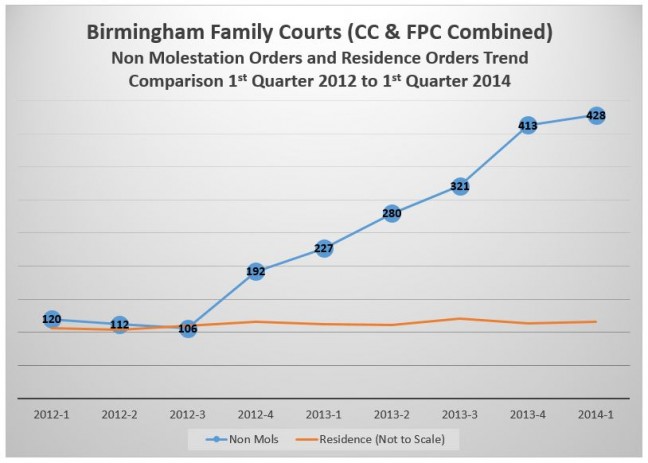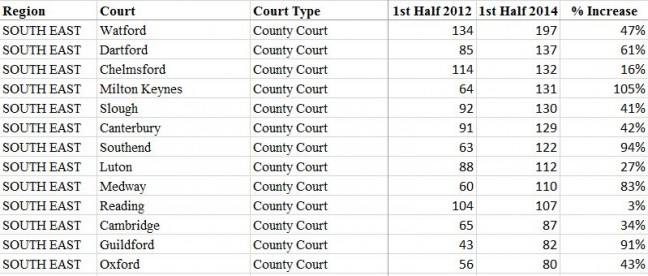Last week we published data for the Midlands and North West, received from a Freedom of Information Act request to the Ministry of Justice concerning non-molestation orders and applications made under civil legal aid. We suspected that applications might have increased since the introduction of the Legal Aid Sentencing and Punishment of Offenders Act 2012 (LASPO). Such was the opinion of others we have spoken to.
The Act limited legal aid in private family law cases to ones where domestic violence was alleged. To provide a meaningful analysis, we’ve compared data between the first half of 2012 (before LASPO) and the first half of 2014 (after LASPO came into force in 2013).
Numbers for the Midlands and North West show a dramatic increase in applications in certain regions. Today we look at the South of England, and national statistics are provided below as a reminder of the national position. Continue reading The Growth in Applications for Non-Molestation Orders: Spotlight on the South of England






